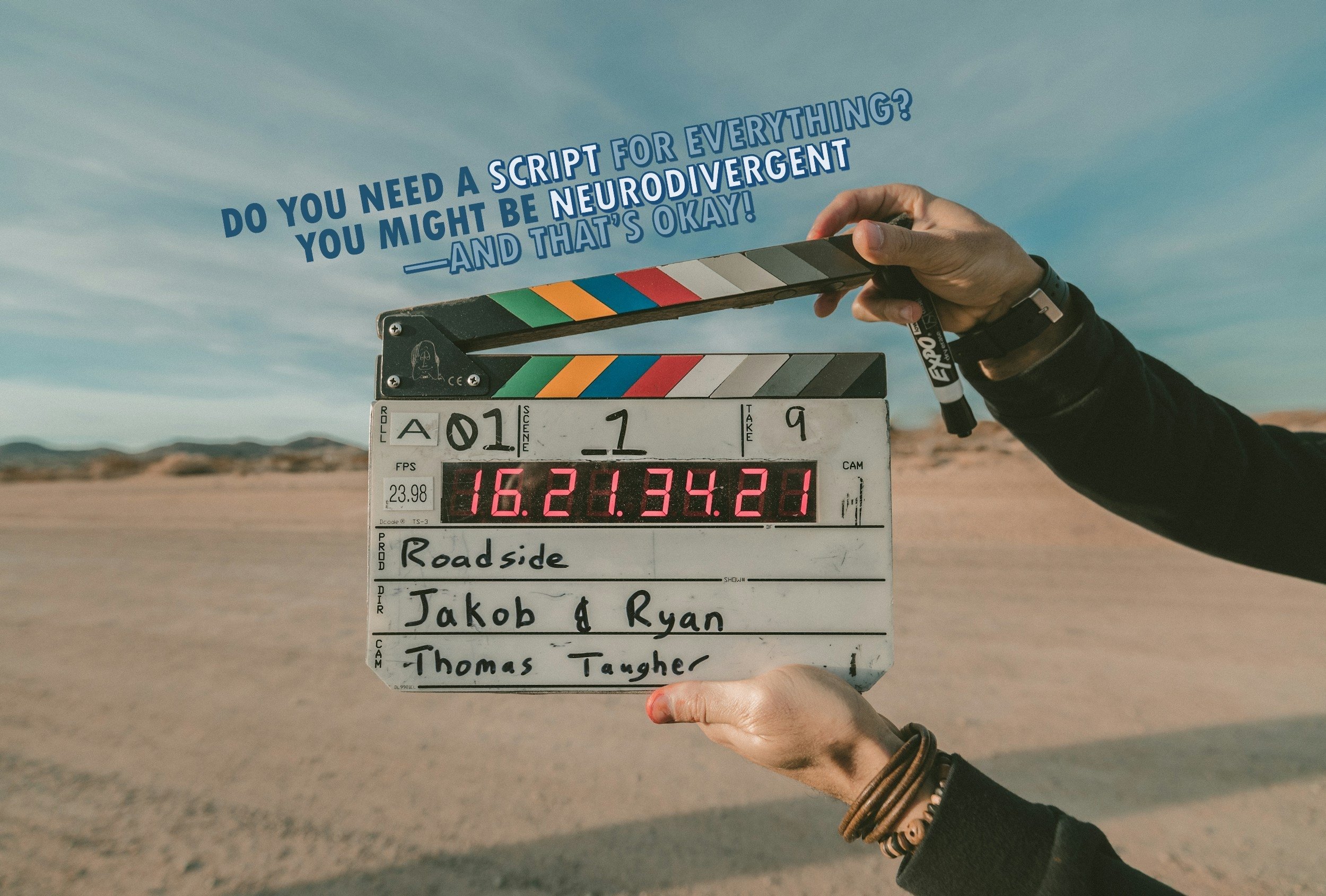Do You Need a Script for Everything? You Might Be Neurodivergent—And That’s Okay.
Do You Need a Script for Everything? You Might Be Neurodivergent—And That’s Okay.
Welcome to the Neurodivergent Family
If you find yourself rehearsing conversations in your head, memorizing responses, or scrambling for the “right” words in social situations, you’re not alone. Many autistic and ADHD individuals rely on scripting—pre-planned phrases or social strategies—to navigate interactions. And if this sounds familiar, you might just be part of the Neurodivergent crew. Welcome! It’s a lovely place to be, and I only wish I had known sooner myself.
I’ve spent over 20 years working with autistic individuals, and I am an autism specialist. And I talk about scripting because, well, I’ve lived my life by scripts—and I know firsthand how exhausting, helpful, and complex they can be.
Why Do Neurodivergent People Rely on Scripting?
Neurotypical people often take social interactions for granted. They naturally “know” what to say in a given situation. But for those of us who are autistic or have ADHD, that natural flow doesn’t always happen. Instead, our brains are constantly analyzing and anticipating:
• What should I say next?
• What is the expected response?
• How do I get out of this conversation?
• Am I being rude?
• Did I overshare?
Our nervous systems are often in overdrive, constantly scanning for cues on how to respond. This is especially true in unpredictable or unfamiliar situations, where scripting becomes a safety net.
Real-Life Scripting: The Squishmallow Purse Incident
Just the other day, I was at the doctor’s office, and someone commented on my Squishmallow purse with a rainbow on it—asking if it was for my daughter. I blanked. Where the hell is the script for this?!
I stammered out something like, “Oh, no, actually, it’s mine,” but the awkwardness was palpable. My brain spiraled into over-analysis:
• Did they judge me?
• Should I have made a joke?
• Would a neurotypical person have handled that differently?
It’s moments like these that remind me just how deeply scripting is wired into my daily interactions.
Scripting: A Survival Tool or a Masking Mechanism?
I want to be clear: I’m not saying you should script everything. In fact, research shows that excessive scripting can be a form of masking—suppressing your true self to fit neurotypical expectations. And masking, over time, can be harmful to your mental health.
But scripting can serve a purpose when used for self-care rather than people-pleasing.
Scripting for Self-Care: When It’s Helpful
Sometimes, having a go-to phrase can help us:
✔ Exit conversations politely (“I have to go pick up my kids”)
✔ Set boundaries (“I need some quiet time right now”)
✔ Manage sensory overload (“Can we turn the music down? It’s a bit overwhelming”)
In Elizabeth Laugeson’s PEERS® Manual for Social Skills, she introduces the concept of a “cover story”—a simple phrase to excuse yourself from a conversation without feeling guilty. While I don’t encourage masking, I do believe in preserving our mental energy.
For example, if someone is chatting your ear off and you’re overwhelmed, you don’t have to say:
“I feel like shit, and I want to leave.”
Instead, you can try a simple scripted exit:
“Oh, I have a call in 10 minutes, I need to wrap this up.”
This isn’t about deception—it’s about managing your energy and nervous system.
Scripting for People-Pleasing: When It’s Harmful
If you find yourself scripting to suppress your true needs, it may be time to re-evaluate. Are you:
❌ Saying “yes” to events when you want to say “no”?
❌ Smiling and nodding to avoid conflict?
❌ Hiding your autistic traits to fit in?
If so, scripting may be a coping mechanism rooted in fear of rejection. And you deserve better than that.
Embracing Your Neurodivergent Voice
One of the most freeing things you can do is to own your neurodivergence. Sometimes, having a simple script for self-disclosure can make interactions easier:
“Hey, just so you know, I’m autistic. I can be a bit blunt, and sometimes I overshare. But if I’m here, that means I like you.”
If someone can’t handle that? They’re not your people. And that’s okay.
You are not “too much.”
You are not “wrong.”
You are not “broken.”
So… Do You Need a Script for Everything?
Maybe. Maybe not. The key is balance. If scripting makes life easier, use it! But if it’s causing exhaustion and disconnecting you from your authentic self, it may be time to peel back some of those layers and rediscover who you are beneath the scripts.
If you’re struggling with this, you don’t have to figure it out alone. I offer therapy, coaching, and group programs for autistic and ADHD adults navigating these challenges.
➡ Want to explore this further? Let’s connect. Book a session.
And remember—you are always welcome in this neurodivergent family.

